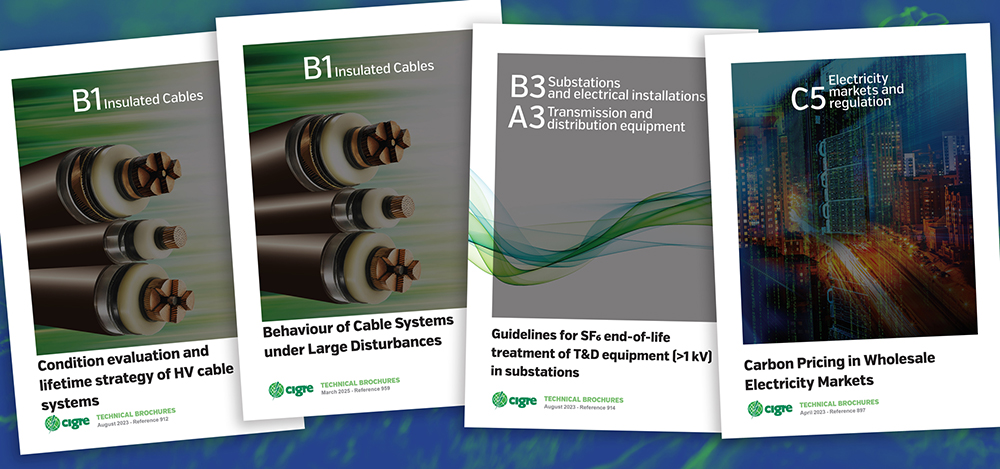To follow is a list of the areas of scope relating to sustainability and climate grouped by each of our relevant global Study Committees.
A1 Power generation and electromechanical energy conversion
• High efficiency electrical machines including generators & motors
• E2E use of sustainable and recyclable materials in machine design and operation
• Equipment for SMR nuclear generation plant
A2 Power transformers and reactors
• Impact of severe weather and climate changes on transformers
B1 Insulated cables
• Recycling of cable materials and change to more environmental materials.
• Resilient cable systems will be more adapted to climatic changes.
B2 Overhead lines
• Increased climatic loads and impact on overhead lines reliability and ageing
B3 Substations and electrical installations
• Circular economy in the construction, operation and maintenance of substations
B5 Protection and automation
• Protection and Automation to improve grid resilience related to climate change
C1 Power system development and economics
• Natural resources depletion and critical materials for system development
C2 Power system operation and control
• Resilience, high impact low probability high impact events
C3 Power system sustainability and environmental performance
• Climate change mitigation (decarbonization & Net Zero) and adaptation (risks & opportunities)
• Environmental & social impacts of power system development and operation
C4 Power system technical performance
• Dynamic modelling of climate-related events and integration into bulk power system performance analysis
C5 Electricity markets and regulation
• Impacts of emission reduction on markets
D1 Materials and emerging test techniques
• Alternative materials with a lower carbon footprint than incumbent options
D2 Information systems, telecommunications and cybersecurity
• Reducing the carbon footprint of telecommunications equipment with consolidation of services on shared equipment through network and server virtualisation technologies
• Use of sensors and wireless IoT communication to detect conditions such as human activity in order to enter low power mode



